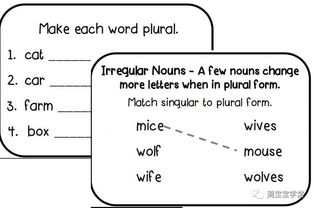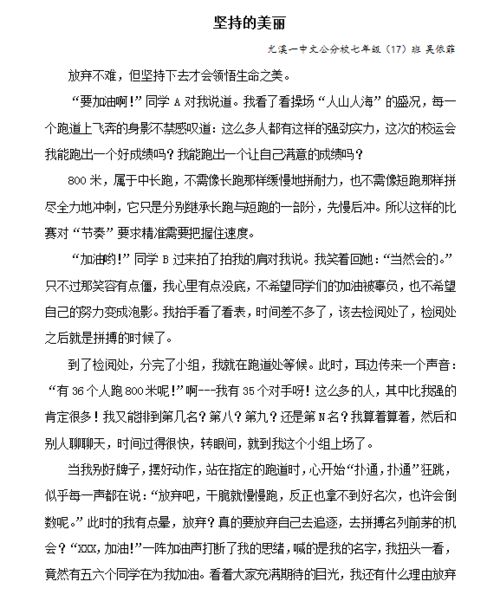imperative语法(immediately语法)
- 体育
- 2023-03-28 14:38:02
- -

imperative是什么意思
祈使
双语对照
词典结果:
imperative[英][ɪm'perətɪv][美][ɪmˈpɛrətɪv]
adj.必要的,不可避免的; 命令的,专横的; 势在必行的; [语]祈使的;
n.必要的事; 命令; 规则; [语]祈使语气;
复数:imperatives
很高兴为您解答
祝你生活愉快,学习进步
答题不易,您的采纳是我答题的动力
如果你对这个答案有什么疑问,请追问
如果满意记得采纳哦·~~
[img]英语 虚拟语气语法?
一、 动词wish后宾语从句中的虚拟语气 1. 用wish表示现在的祝愿和报歉。
其句子结构为:宾语从句的谓语be和were(was),实义动词用过去式。例:I wish the were at home this time.
2. 用wish表示对过去事情的遗憾。
其句子结构为:宾语从句的谓语用过去完成时或could+现在完成时。例:I wish I hadn' t hurt him so much。
3. 用wish表示对将来事情的愿望。
其句子结构为宾语从句的谓语为would/could/might+动词原形。例:I wish I might be able to come tomorrow 。
二、 用在一般虚拟条件句中的虚拟语气 (一) 表示与现在、过去、将来事实相反的假设
1. 与现在事实相反的假设。
其句子结构为:
从句:if+主语+动词的过去式(be变were)+其他
主句:主语+would(should, could, might)+动词原形+其他
例:If I were you, I would go with him.
2. 与过去事实相反的假设。
其句子结构为:
从句:If+主语+过去完成时+其他
主句:主语+should(would, could, might)+现在完成时+其他。例:If you had studied harder last term, you could have passed exam.
3.表示对将来事实实现的可能性不大的假设。
其句子结构为:
从句:If+主语+should (were to )+动词原形+其他
主句:主语+would (could, should, might)+动词原形
例:If he were to go tomorrow. He might tell you.
(二) 从句和主句要根据各自发所生的时间选用符合具体时间的虚拟语气形式
1. 从句表示过去,主句表示现在。
If they had stared the early morning yesterday, they would be here now.
2. 从句表示将来,主句表示过去。
If I were not to make a preparation for my experiment this afternoon, I would have gone to see the film with you last night。
3. 从句表示过去,主句表示将来。
If we hadn' t made adequate preparations, we shouldn' t dare to do the experiment next week。
4.从句表示将来,主句表示现在。
If we shouldn' t have an exam this afternoon. I would go shopping now.
三、 可以引起与事实相反的方式状语从句,用虚拟语气 由as if、as though引起的与事实相反的句子,不论主句的谓语是现在时或者说过去时,其谓语表示的时间概念和句子结构,都基本上与wish后的宾语从句相同。例:
John pretends as if he didn' t know the thing at all, but in fact he knows it very well.
(用过去式表示与现在事实相反的假设)
The old man looked at the picture, he felt as though he had gone back to time 20 years ago.
(用过去完成式表示与过去相反的事实)
They talked and talked as if they would never meet again (would+动词原形,表示与将来事实相反)
四、在表示建议、命令、要求、忠告等动词的后面,其宾语从句的谓语用“should+动词原形”表示虚拟语气 常用的此类动词有:
表示“要求”的:ask, desire, request, demand, require, beg
表示“提议、劝告、建议”的:move, prpose, suggest, recommend, advise, vote
表示“决定、命令”的:decide, order
表示“主张”的:maintain, urge
表示“同意、坚持”的:consent, insist
例:The doctor suggested that he (should) try to lose his weight.
He insisted that we (should ) tell him the news.
上述动词的名词形式,demand, desire, requirment, advice, order, decision, recommendation, suggestion, 以及necessity, preference, plan, motion, idea等名词,其后的表语从句或同位语从句,也用“should+动词原形“表示虚拟语气。现代英语,特别是美国英语,常省去“should”,例:
The advice is that we (should) leave at once.
He idea that we (should)visit Great Wall was warmly welcomed. 五、在“It is (was)+形容词(或过去分词)+that……”结构中,主语从句的谓语也用“should+原形动词“表虚拟语气
美国英语中省去should, 常用的形容词和过去分词有:
表示“要求”的:required, demanded, requested, desired, desirabl。
表示“建议”的:suggested, recommended,
表示“迫切、紧近、重要”的:imperative, urgent, necessary, essential, important, vital
表示“适当、较好”的:appropriate, advisable, better, preferable
表示“可能”的:probable, possible
表示“命令”的:ordered
例:It was necessary that we (should) make everything ready ahead of time.
It is required that nobody (should)smoke here.
六、由下列名词或短语引导,或含有某些词的从句中应用的虚拟语气
1.“Iest 以免、惟恐”引导的从句用“shuld+动词原形”。
He took a map with him lest he (should ) lose his wag there.
2.“whether不管、无论”引导的让步状语从句,有时用动词原形。
All things, whether you know or don' t know, exist in the world.
3.用“would rather/had rather' would just as soon"表示“宁愿、但愿”,后面的宾语从句谓语用过去式或动词原形表示对将来的要求,用过去时表示对现在的愿望,用过去完成时表示对过去做的事的懊悔。
Don' t live in the world, I would rather( I would just as soon) you die.
I would rather you go tomorrow.
I would rather everything hadn' t happened in the past.
4.用“had hoped”表示原来希望做到而实际上未能实现的事情,其宾语从句的谓语用“would+动词原形”。
I had hoped that she would go to the U.S. and study there, but she said she liked to stay in China.
5.在“It is(high/about)time+that”引导的定语从句中,定语从句的主谓语用一般过去时,偶尔也可以用would(或should)+动词原形,或had rather (would rather)+动词原形。
It is hihg (about)time that we left/should leave/ had better leave/had rather leave/ were leaving.(注意与“This is the first/second…time”后从句中用现在完成时的区别。
6.用“without/but for/in the absence of ”表示“要不是”,“如果没有”(相当于if it were not for…)表示条件时,句中一般用虚拟语气。(也可用陈述语气)
Without your help, I couldn' t finish my work on time.
In the absence of water and air, nothing could live.
7.由“providing (that)/ provided (that)/on condition that/ in order that”引导的条件从句或目的从句,根据情况,可用虚拟语气。(有时也可用陈述语气)
They are willing surrender provided they are given free passage.
8.在if引导的虚拟条件句中,若有were, had, should, 在书面语中可省去if ,将were等提到主语前,形成倒装。
Should there be a good film tomorrow. I would go to the theatre with you.
Were it not for your help. I wouldn' t be succeed.

那些永远记不住的单词|Imperative 不可避免【060】
adj. 必要的,不可避免的;紧急的;命令的,专横的;势在必行的;[语]祈使的
n. 必要的事;命令;需要;规则;[语]祈使语气
英 [ɪm'perətɪv] 美 [ɪm'pɛrətɪv]
因紧急,必要而产生的重要就是imperative,英文的原意是of vital importance,同时也延伸为来自权威命令的意思。
以-tive结尾的形容词常常可以直接作为名词使用,这个单词也不例外。Imperative也是语法中祈使语气的意思(Imperative Mood),例如“Do it now please”就是一个祈使语气句。
It was imperative that he act as naturally as possible.
至关重要的是他要尽可能地自然行事。
The transparent communication between different departments becomes imperative for effective collaboration.
在不同部门之间的透明沟通对于有效的协作是势在必行的。
在罗马共和国阶段,获胜的将军可以临时获得Imperator的称号。但到了古罗马帝国时代,就只有最高统治者的皇帝就叫Imperator了。这个单词通过法语最终演化成Emperor(皇帝),所以imprative要远远地比important更加不容商量。
哲学中,用moral imperative 来表达“道德责任”。近代最伟大的哲学家康德也是最重要的伦理学奠基人。他认为意志为自己立法,人类辨别是非的能力是与生俱来的,而不是从后天获得。这套自然法则是无上命令,适用于所有情况,是普遍性的道德准则,哲学中就把这种无上的道德法则定义为Categorical Imperative 。因此康德认为,一个行为是否符合道德规范并不取决于行为的后果,而是采取该行为的动机。康德还认为,只有当我们遵守道德规则时,我们才是自由的,因为我们遵守的是我们自己制定的道德准则,而如果只是因为自己想做而做,则没有自由可言,因为你就成为各种事物的奴隶。
康德的伦理道德思想一直照耀到今天,成为大部分现代社会中人们调节自己心灵,改善自我的思想动力。
他最著名的文字如下:
我最敬畏的是两件事,头顶的星空和心中的道德律。
每天更新一篇文章,记住和深度理解一个单词,英语上一个新台阶,从此轻松啃下英文原著。
Benefits of VIPs: 1)每天专用微信群内及时推送,进一步就单词互动巩固。2)在群内和任向晖的真人对话。3)年底汇编电子书。4)和任向晖不定时奖励的学习红包。
加入《那些永远记不住的单词》年度英语学习特别计划的VIP群请 点击此处 。
imperative和vital什么区别
imperative做形容词时表示必要的,不可避免的;紧急的;命令的,专横的;势在必行的;而vital则表示至关重要的;生死攸关的;有活力的。
此外imperative还有在语法上表示祈使;还可以做名词表示必要的事;命令;需要;规则。

本文由作者笔名:ご深血★毒魔彡 于 2023-03-28 14:38:02发表在本站,原创文章,禁止转载,文章内容仅供娱乐参考,不能盲信。
本文链接:https://www.3m3q.com/ty-70091.html
 ご深血★毒魔彡
ご深血★毒魔彡














